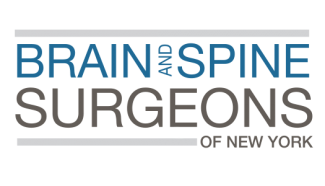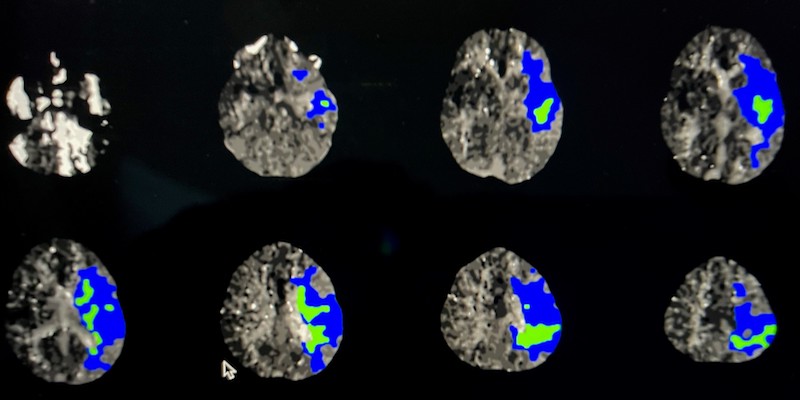
Case Study: Chronic Stroke in Left Caudate Nucleus & Left Carotid Artery Tear
The Problem
The patient was a 36-year-old female who came to the emergency room with a right-sided facial droop, numbness, and difficulty speaking.
The Diagnosis
The patient’s condition combined with an initial CTH showed a chronic stroke appearing in the left caudate nucleus of the brain. A CTA of the head and neck also showed a possible tear in her left carotid artery and complete occlusion of the middle cerebral artery. The cause was initially unclear. Dr. Ched Nwagwu recommended a cerebral angiogram for high-resolution imaging of the blood vessels of the neck and brain. Dr. Nwagwu explained the risks, benefits, and alternatives for the procedure and the patient understood and wished to proceed as soon as possible.
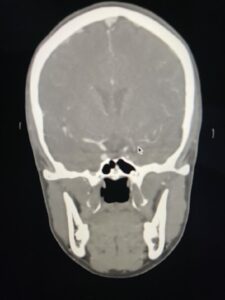
CTA of the head showing severe narrowing of the left middle cerebral artery in the brain.
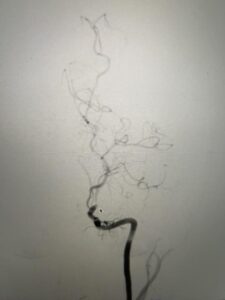
Severe narrowing of the left middle cerebral artery.
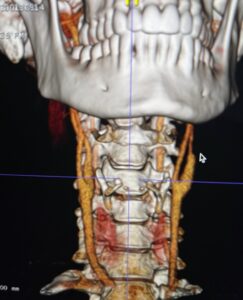
3D cerebral angiogram showing the dissection of the cervical left internal carotid artery.
The Treatment
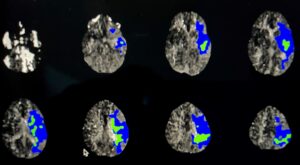
CT brain perfusion study. Blue and free areas represent portions of the brain at risk for stroke.
The Outcome
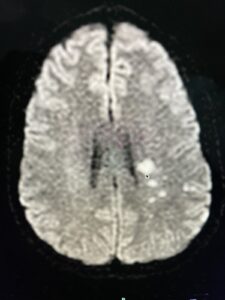
Final MRI of the brain showing a much smaller area of stroke.
Meet the Surgeon
 Dr. Ched Nwagwu is a board-certified, fellowship-trained neurosurgeon specializing in cerebrovascular disease. Dr. Nwagwu received his medical degree from Mount Sinai School of Medicine, graduating Magna Cum Laude. He completed an internship in General Surgery and residency in Neurological Surgery at New York Medical College in Valhalla, New York. He then completed a comprehensive, two-year fellowship in Endovascular Neurosurgery with the Indianapolis Neurosurgical Group/Goodman and Campbell Brain & Spine. While there, he mastered the latest treatments and techniques for management of strokes, brain aneurysms, carotid disease and vascular malformations. Click here to learn more about Dr. Nwagwu.
Dr. Ched Nwagwu is a board-certified, fellowship-trained neurosurgeon specializing in cerebrovascular disease. Dr. Nwagwu received his medical degree from Mount Sinai School of Medicine, graduating Magna Cum Laude. He completed an internship in General Surgery and residency in Neurological Surgery at New York Medical College in Valhalla, New York. He then completed a comprehensive, two-year fellowship in Endovascular Neurosurgery with the Indianapolis Neurosurgical Group/Goodman and Campbell Brain & Spine. While there, he mastered the latest treatments and techniques for management of strokes, brain aneurysms, carotid disease and vascular malformations. Click here to learn more about Dr. Nwagwu.

